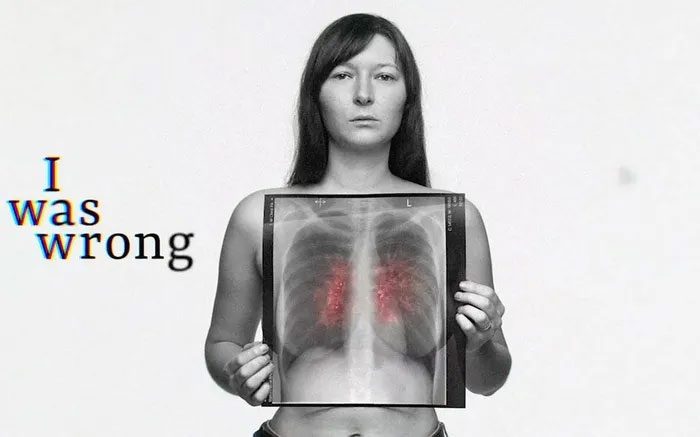According to a new study published in The Lancet Public Health, a ban on tobacco sales for individuals born between 2006 and 2010 could create a smoke-free generation and save 1.2 million lives from lung cancer by 2095.
The research comes amid rising concerns that tobacco is re-emerging as a symbol among youth. After a sharp decline in smoking rates among the 1990s generation, the trend has recently slowed down significantly among Gen Z and Generation Alpha, even showing signs of an increase.
For instance, in the UK, the smoking rate among young people aged 18-24 was just 25.7% in 2011. This number dropped to 9.8% by 2023. However, a study from University College London found that post-COVID-19, the smoking rate has only decreased by 0.3% per year, compared to a decline of 5.2% prior to the pandemic.
Tobacco is Making a Comeback, Becoming a Trend Among Youth?
A survey by Independent indicates that tobacco appears to be resurfacing more frequently in cultural media aimed at the youth. For example, when celebrity Sam Thompson escaped the wilderness in the reality show “I’m A Celebrity… Get Me Out of Here!”, the first thing he expressed a desire to do was smoke a cigarette.
Lily-Rose Depp, an actress born in 1999 and daughter of actor Johnny Depp, is frequently spotted on red carpets with a cigarette in hand.
Similar imagery is seen with Jeremy Allen White, star of the series The Bear, pop singer Rosalía, actor Paul Mescal, and TikToker Victoria Paris.
The Netflix series Griselda topped charts globally in 89 countries earlier this year, featuring numerous scenes where characters smoke cigarettes. Last month, Lady Gaga was seen smoking while playing the piano and singing in her new music video with Bruno Mars.
Ironically, her song is titled “Die With A Smile,” which has garnered over 133 million views worldwide.

Lung cancer is the leading cause of death worldwide.
Over 3 Million People Will Die from Lung Cancer if Youth Continue Smoking
The World Health Organization (WHO) states that tobacco is responsible for 85% of lung cancer cases, the most fatal cancer globally.
According to new research from the International Agency for Research on Cancer (IARC) of the WHO, if current trends continue, there will be nearly 3 million lung cancer deaths among those born between 2006 and 2010.
However, if a ban on tobacco sales could be implemented for the 650 million individuals in this group, models from the study published in The Lancet suggest that over 1.2 million lung cancer deaths could be prevented by 2095.
This figure is derived from scientists collecting data on smoking rates, lung cancer incidence, and mortality across 185 countries. This is the first and most comprehensive study assessing the impact of creating a smoke-free generation.
The researchers chose the Gen Z cohort born from 2006 to 2010 because they are currently aged between 13 and 18. Starting next year, these children will begin to legally purchase tobacco in many countries.
Scientists indicated that increasing the legal purchase age for tobacco could prevent over 40% of lung cancer deaths in this group over the next 70 years.

Tobacco is responsible for 85% of lung cancer cases.
Secondhand Smoke Costs Over 120 Trillion in Lung Cancer Treatment
The 1.2 million preventable lung cancer cases can also be translated into economic terms. For example, a study in the Journal of Medical Research indicated that the average treatment cost for lung cancer patients in stages III and IV is 80.8 million and 117.5 million VND per year, respectively.
If we take an average of 100 million VND and consider that statistics show the prognosis for most advanced lung cancer patients is less than one year, a smoking ban for Generation Alpha could save at least 120 trillion VND in lung cancer treatment costs.
This does not account for expensive treatments like targeted therapies and immunotherapy, which can cost patients between 1-3 billion VND per year.
“Lung cancer is the leading cause of death worldwide, and up to two-thirds of lung cancer-related deaths are associated with tobacco, a preventable risk factor,” said Dr. Julia Rey Brandariz, a researcher from the University of Santiago de Compostela in Spain.
“Our model emphasizes how much governments stand to gain by considering ambitious plans to create a smoke-free generation.
This could not only save many lives but also significantly reduce the burden on healthcare systems in treating and caring for those affected by smoking-related illnesses.”
A Tobacco Ban for Those Over 18 Requires Significant Commitment
Commenting on the new study, Jennifer Stevens, director of the Northwell Health Tobacco Control Center, stated: “There is no doubt that preventing and eliminating tobacco sales will help reduce mortality rates and healthcare costs globally.”
However, Stevens noted that for decades, lawmakers have attempted to promote a tobacco ban for those over 18 but have not achieved significant success.
For instance, in 2022, New Zealand became the first country to ban tobacco sales for those born after 2008. However, by the end of last year, the new conservative government announced plans to repeal this ban.
The tobacco industry is harmful but cannot be banned because it generates substantial tax revenue in many countries. Tobacco excise taxes contribute billions of USD to national budgets, so a complete ban would have significant economic impacts.
Additionally, the tobacco industry is a global enterprise, providing jobs for millions, from tobacco farmers to those involved in production and sales. Therefore, a complete tobacco ban would also have major effects on the economy and the livelihoods of many people.

The tobacco industry is a global enterprise that provides jobs for many.
The tobacco industry is financially powerful and highly influential. They often use legal measures to protect their interests and have many ways to thwart efforts to impose a complete tobacco ban.
In light of these impacts, Stevens mentioned that the focus of tobacco harm reduction campaigns should still concentrate on educating, especially the youth, about the dangers and long-term effects of smoking.
A complete ban on selling and smoking tobacco for those over 18 remains challenging to implement and requires substantial commitment from governments worldwide.


















































